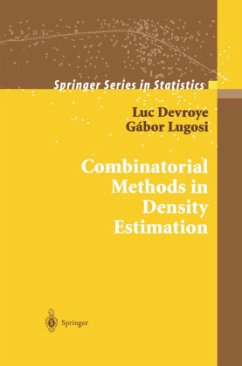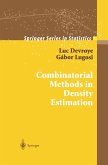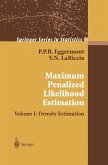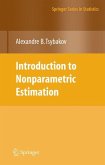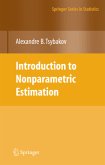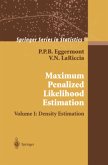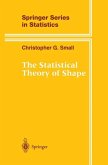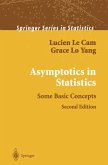Density estimation has evolved enormously since the days of bar plots and histograms, but researchers and users are still struggling with the problem of the selection of the bin widths. This text explores a new paradigm for the data-based or automatic selection of the free parameters of density estimates in general so that the expected error is within a given constant multiple of the best possible error. The paradigm can be used in nearly all density estimates and for most model selection problems, both parametric and nonparametric. It is the first book on this topic. The text is intended for first-year graduate students in statistics and learning theory, and offers a host of opportunities for further research and thesis topics. Each chapter corresponds roughly to one lecture, and is supplemented with many classroom exercises. A one year course in probability theory at the level of Feller's Volume 1 should be more than adequate preparation. Gabor Lugosi is Professor at Universitat Pompeu Fabra in Barcelona, and Luc Debroye is Professor at McGill University in Montreal. In 1996, the authors, together with Lászlo Györfi, published the successful text, A Probabilistic Theory of Pattern Recognition with Springer-Verlag. Both authors have made many contributions in the area of nonparametric estimation.
From the reviews of the first edition: "This book is built around a new look on the important problem of bandwidth selection in density estimation. This new method has been launched in two recent papers of the two authors in the Annals of Statistics. It is based on ideas of minimum distance methods and convergence theory for empirical measures, uniformly over certain classes. The methods aim at finding estimators with universal properties that is valid for all (or nearly all) densities. The book is self-contained because a lot of fundamental inequalities and essential combinatorial techniques are collected in the first part of the book. There is a rich choice of exercises, some of which may be quite hard. This makes it interesting for classroom teaching. It is an attractive book that certainly provides inspiration for further research." Short Book Reviews, Vol. 21, No. 2, August 2001 "The book deals with probability density estimation from an i.i.d. sample, but the approach is different from those used in other texts on this topic. ... It is the aim of the book to study universal performance properties of these estimates. ... it is well written following the same idea throughout and contains many exercises which complete the different topics. ... I enjoyed reading this nicely written book which can certainly be recommended to all mathematically orientated statisticians interested in the subject." (Ulrich Stadtmüller, Mathematical Reviews, Issue 2002 h) "This carefully written monograph focuses on nonparametric estimation of a density from i.i.d. data, with the goodness-of-fit being measured in terms of the L1-norm. ... The book is recommended to those who want to get an overview of the state of the art of this approach." (W. Stute, Zentralblatt MATH, Vol. 964, 2001)

